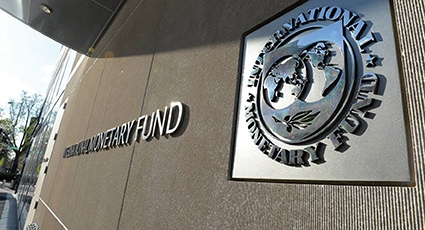IMF to Release $42.4 Million to Georgia
The International Monetary Fund’s Executive Board completed its first review of Georgia’s performance within the three-year extended arrangement under the Extended Fund Facility (EFF) on a lapse-of-time basis, on December 6.
The completion of the review enabled them to release of SDR 30 million (about $42.4 million), bringing the total disbursements under the arrangement to SDR 60 million (about $84.8 million). The extended arrangement for SDR 210.4 million (about $297.5 million or 100% of quota) was approved by the Executive Board on April 12 this year.
As noted, “The economic recovery [in Georgia] is gaining momentum, inflation is projected to decline starting early 2018, and the external position has strengthened.”
The information in the IMF statement also points out that although Georgia’s economic performance has improved, “risks remain”.
“Revenue overperformance provides room for additional capital spending and VAT repayments in 2017. The banking sector remains liquid, profitable, and well capitalized. Despite the positive outcomes, the authorities need to remain vigilant and sustain reform efforts to address structural obstacles to growth,” it says, adding that, “The 2018 budget appropriately targets further fiscal consolidation, envisaging a further decline in the deficit while allowing for an increase in capital spending.”
The IMF then recommends Georgia further strengthen revenue administration, in order to “prevent the buildup of VAT claims.”
Another recommendation from IMF following Georgia’s three-year performance review is for Georgian authorities to “bolster efforts to further contain current spending, for instance, by containing the wage bill, improving the targeting of social programs, and reducing subsidies and equity injections to state-owned enterprises (SOEs).” It is also states that the “mid-term fiscal commitments should be completed as currently envisaged and require progressing with institutional fiscal reforms”.
According to the review, “The NBG’s monetary policy stance is appropriate, but the authorities need to remain vigilant on monetary and financial developments, including those related to credit growth. The inflation targeting framework, combined with the floating exchange rate regime, has served Georgia well. Foreign exchange intervention should remain limited to smoothing excessive exchange rate volatility and building reserves. The NBG’s steps to strengthen liquidity management, de-dollarize the economy, and improve communication will help strengthen the monetary framework.”
“Continued efforts to advance structural reforms are key to achieving higher and more inclusive growth. Upgrading infrastructure and strengthening trade integration will boost growth prospects. The new insolvency law for non-financial corporations and the Business House will help improve the business environment. The pension reform will increase the availability of domestic savings to support investment, as long as contributions are enforced. Improved capital market infrastructure, by facilitating mobilization of funds, will support capital accumulation. To further support growth, Georgia also critically needs to advance on education reform,” the IMF’s statement reads.
http://www.imf.org/en/news/articles/2017/12/06/pr17463-imf-board-completes-the-first-review-of-the-extended-arrangement-under-eff-for-georgia
Nino Gugunishvili











